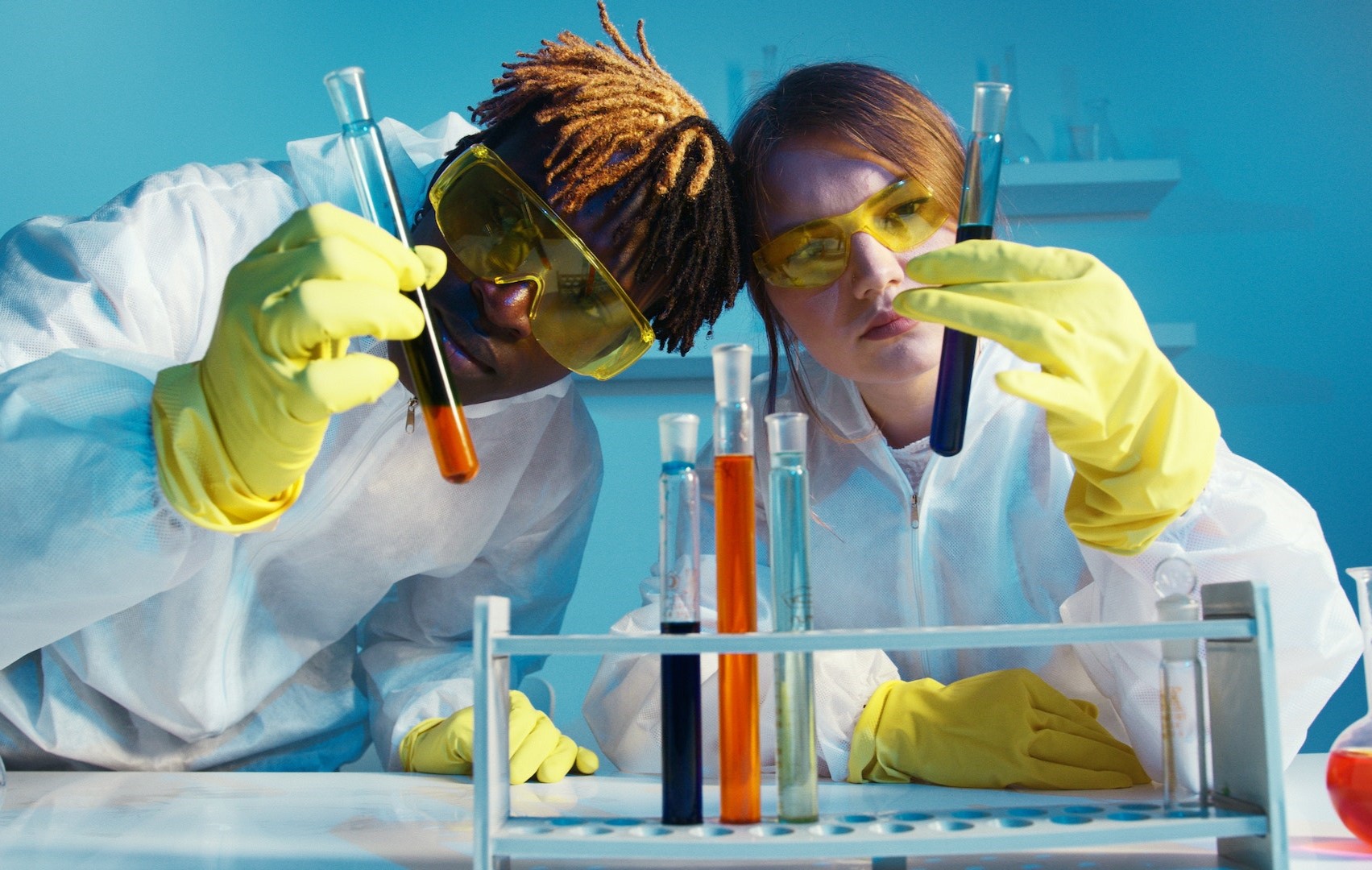It can be rather tricky if you’re considering attending a school or majoring in chemistry. However, this field allows you to learn more than just atoms and molecules.
There’s also extensive theory involved in the coursework, with graphs, formulas, and intensive laboratory experiments. Let’s explore!
Is Chemistry Hard?
Chemistry is a challenging major, and students must learn about elements, their reactions, and various exceptions, all of which can be challenging to understand. There are extensive coursework materials and intensive laboratory experiments. To become qualified in chemistry, start by enrolling in degree programs and learning from experienced teachers.
So if you decide on a chemistry course, let me give some light on it. Keep reading to learn more!
1. Periodic Table and Elements
A chemistry major examines the intricate interactions between the elements listed in the periodic table.
Students will discover the underlying characteristics of matter in classrooms and laboratories, becoming skilled researchers and problem-solvers.
Additionally, a chemistry major investigates the chemicals that make up the universe and the processes by which everything transforms.
Students can participate in a wide range of jobs with a degree in chemistry, from producing medicines to supporting investigations at crime scenes.
2. Very Hard Major with Excellent Career Outcomes
Chemistry is a very difficult major.
It would be best if you could,
- memorize vast amounts of information,
- comprehend an endless number of natural biochemical processes, and
- research organic chemistry, which covers over 166 billion compounds.
On the plus side, many individuals discover that a chemistry major is beneficial because it can route to various lucrative and sought-after careers with great salaries, such as,
- Chemists – average $89,130 and could earn over $156,000 annually.
- BioChemists – average $113,460 and could earn over $167,000 annually.
- Natural Sciences Managers – average $156,110 and could earn over $200,000 annually.
- Chemical Engineers average $121,840 and could earn over $187,000.
Additionally, the sector will grow between 6% and 15% annually over this decade, adding thousands of jobs each year.
3. Qualifications
It could take one to four years to complete a chemistry degree, depending on your chosen curriculum.
- Associate Degree (Two years)
- Bachelor’s Degree (Four years)
- Master’s Degree (One to three years)
- Doctoral Degree (At least four years)
On the other hand, short courses allow students to advance their studies more rapidly and benefit from the course’s advantages. They can be accomplished in weeks or months and get you started on your journey.
4. Extremely Competitive
Most universities concentrate their admission decisions on a merit-based system, whereas others also require entrance examinations.
You must have earned a high school diploma or provide certification that you gained your GED to be admitted to a chemistry degree course.
Students can assume that academic chemistry opportunities will be highly competitive even after graduation.
However, as we have previously noted, there is a tremendous demand for recent graduates.
5. Requires Strong Ground for Math and Science
A student may anticipate completing core subjects in the following four fields of chemistry:
- Analytical Chemistry
- Inorganic Chemistry
- Organic Chemistry
- Physical Chemistry
For some students, the most challenging discipline of chemistry is physical chemistry since it mandates extensive rules of chemical formulas.
As you can see, chemistry has complex topics because it necessitates significant calculations to solve complex problems.
6. Laborious Laboratory Protocols

Laboratory work is an essential element of chemistry courses.
Students receive instruction on suitable techniques and the best standards for using scientific instruments and protocols in a laboratory environment.
For instance, you might be taught how to conduct observations, take measurements, follow clearly defined scientific procedures, and handle scientific equipment properly.
Additionally, you must prepare, write, and submit a research paper using a standard academic writing style.
7. Challenging but Interesting
In chemistry, you must measure numerous reactions, perform tedious calculations, and do repetitive experiments. Although, the coursework and laboratories are extensive, many students find chemistry fascinating.
Instead of dumbing down the main points, college students respond to the challenge and understand the subject thoroughly as professors and lab assistants make the sessions enjoyable.
If students give it a chance, chemistry can be great fun. After all, innumerable chemical reactions generate bizarre and amusing outcomes.
8. Notoriously High Workload
Some students are occasionally forced to stay all night indoors, working on solving problems, and frequently stay up late to complete assignments and do self-study.
However, they do still have leisure time.
A few weeks are busier than others, particularly if several deadlines overlap, then students may be swamped with homework.
Still, the following week can always be a little less busy.
9. Internships and Work Experience
Some of the shadow work by chemistry majors can be creating a novel test for analyzing gene therapy compounds in stem cells.
Others concentrate on researching alternative substances that increase the effectiveness of stem cell gene therapy, while some develop and characterize antiviral medications against HIV-1.
Through this, students have made significant initial steps toward a career in scientific work.
10. Accreditations and Certificates
An independent, nationwide system that acknowledges quality in degree programs in biochemistry specialties is the ASBMB accreditation.
Students who want to acquire degree accreditation must:
- Be pursuing their last year of the BMB curriculum.
- Earn a passing score on the ASBMB board examination.
This certification examination is designed to assess candidates’ proficiency in the fundamental concepts of molecular biology and biochemistry that the ASBMB and its affiliates have established.
11. University Fees
For most four-year universities, the typical annual tuition for a chemistry degree is $9400 in public and $37,600 in private non-profit universities.
At the same time, a master’s degree would cost $13,677 for the academic year with 12 credits per semester.
To learn more, you can also see our posts on Chemistry, Chemical Engineering, Biomedical Science, and Forensic Science.
Conclusion
As demonstrated, chemistry classes will be pretty tough. Chemistry is one of the sciences for which there can be no easy shortcuts. Hence you must know the basics of chemistry before proceeding further in this field of education.
The best way to approach chemistry is to start with a great deal of study and research. Additionally, it would help to develop critical thinking and problem-solving skills along your learning journey.

